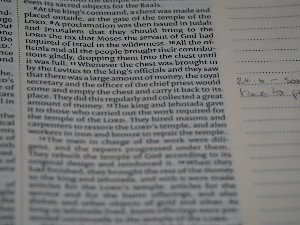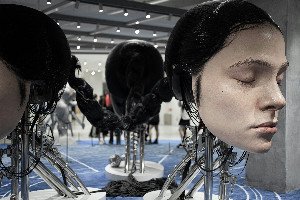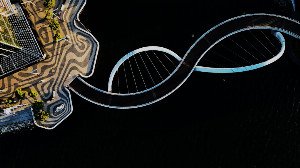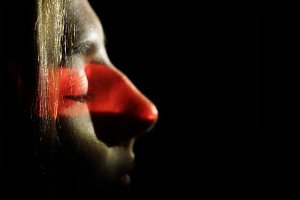Author
The form of texts: possibilities and limitations of an «integral» text- typological model
Linguistics
ENERGEIA. ONLINE JOURNAL FOR LINGUISTICS, LANGUAGE PHILOSOPHY AND HISTORY OF LINGUISTICS
Introduction
The form of texts: possibilities and limitations of an «integral» text- typological model. Explore Coseriu's "linguistics of sense" to define an integral text-typological model. This paper examines the possibilities and limitations of text type as the form of discourse for real texts.
Abstract
The paper explores the possibilities and limitations of a general text typology within the framework of Coseriu’s «text linguistics as a linguistics of sense» (Textlinguistik als Linguistik des Sinns). The investigation draws upon three sources: (i) explicit references to text-typological concepts in Coseriu’s work and the internal organization of this field as recoverable from his illustrations and analyses; (ii) an analogy with Coseriu’s concept of language type; (iii) a consistent pursuit of the theoretical premises of sense construction and sense articulation. We propose a definition of text type as the form of discourse, i.e. as a functionally distinct layer of textual organization – that of the principles which justify in a unitary way the orientation of sense construction in the individual text, beyond the heterogeneity of the text’s constitutive units and strategies. By discussing the presuppositions and consequences of this definition, we aim to ascertain in what way and to what extent it is possible to construct an «integral typology of real texts», as opposed to a mere classification of text-constitutive units, procedures or strategies.
Review
The paper "The form of texts: possibilities and limitations of an «integral» text-typological model" addresses a significant and complex challenge in text linguistics: the development of a comprehensive text typology. By grounding its investigation in Coseriu’s "text linguistics as a linguistics of sense," the authors position their work within a robust theoretical framework, promising a deep conceptual exploration rather than a purely descriptive approach. The abstract clearly articulates the ambition to move beyond fragmented classifications towards an "integral typology of real texts," signaling a valuable contribution to the ongoing discourse on how texts are structured and understood. A key strength of this paper lies in its methodologically sound approach, drawing from three distinct yet interconnected sources: explicit references to Coseriu’s work, an insightful analogy with his concept of language type, and a consistent pursuit of the theoretical premises of sense construction and articulation. The proposed definition of text type as the "form of discourse" – a "functionally distinct layer of textual organization" – is particularly compelling. This definition highlights the overarching principles governing sense construction, aiming to unify understanding across diverse textual units and strategies. This conceptual clarity is crucial for establishing a coherent framework for text typology. While the paper effectively outlines its theoretical foundations and definitional proposals, the abstract leaves some questions regarding the concrete operationalization of the "integral typology" itself. Future readers would likely benefit from more explicit details on how this proposed model tangibly addresses and integrates the "heterogeneity of the text’s constitutive units and strategies" in practice. Specifically, how does the model move from theoretical principles to an actionable typology that can classify "real texts" in a demonstrably integral manner? Nonetheless, the paper presents a highly relevant and theoretically rigorous exploration into a foundational aspect of text linguistics, offering a promising re-evaluation of text-typological models through a rigorous Coseriu-inspired lens.
Full Text
You need to be logged in to view the full text and Download file of this article - The form of texts: possibilities and limitations of an «integral» text- typological model from ENERGEIA. ONLINE JOURNAL FOR LINGUISTICS, LANGUAGE PHILOSOPHY AND HISTORY OF LINGUISTICS .
Login to View Full Text And DownloadComments
You need to be logged in to post a comment.
Top Blogs by Rating
Beyond the Stereotype: Unpacki...
By Sciaria
The Evolution of Knowledge in...
By Sciaria
Unlocking Life's Source Code:...
By Sciaria
Favorite Blog
The Elusive Self: Is Authentic...
By Sciaria
Beyond the Stereotype: Unpacki...
By Sciaria
'Um' Isn't Just a Stumble: Wha...
By Sciaria
Related Research
Sosialisasi pembuatan abon dan petis ikan di smkn 4 kendal
Book reviews
La cultura italiana en buenos aires en 1928. un debate
Share
Notice Board
- TEACHERS' INTERPRETATION OF THE MERDEKA CURRICULUM AS A POLICY INNOVATION: A PHENOMENOLOGICAL EXPLORATION
- VISUALISASI BUNGA LILY SEBAGAI SIMBOL CINTA DALAM PENCIPTAAN KARYA SENI GRAFIS SABLON SUBLIM
- GAMBARAN PERSEPSI PASIEN PELAYANAN RAWAT JALAN NON BPJS TERHADAP KEPUASAN PASIEN DI RUMAH SAKIT PERMATA PAMULANG 2024




